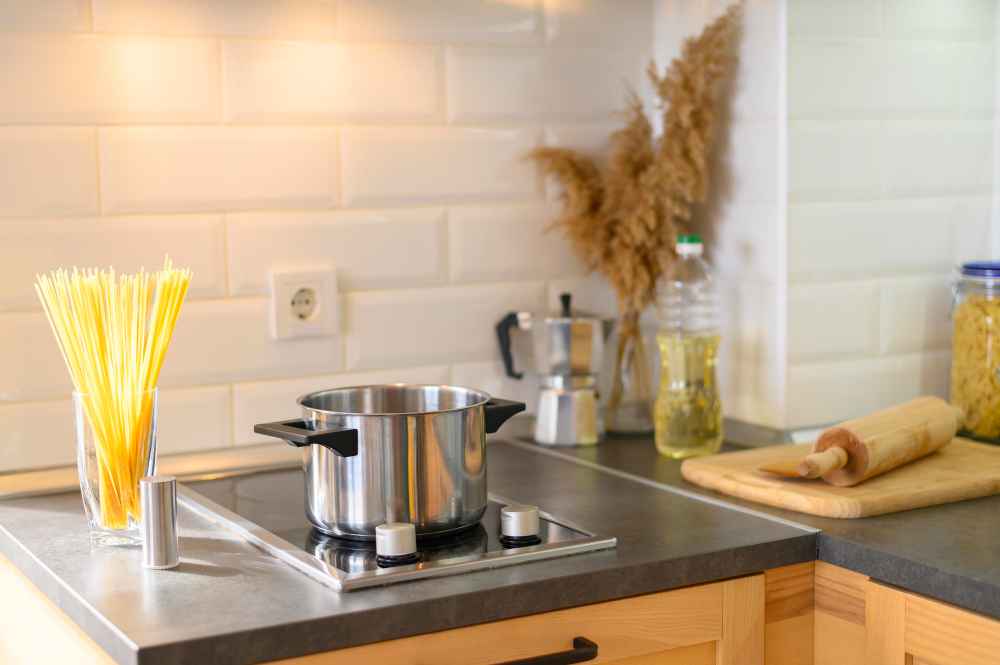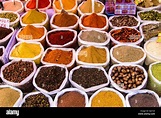Cookware Set is an essential part of any kitchen, and proper care is crucial to ensure its longevity and performance. Whether you’re a home cook or a professional chef, understanding how to care for your kitchen items, especially your cookware, can enhance your cooking experience. This comprehensive guide will cover various types of cookware, including ceramic cookware, non-stick cookware, granite cookware, and more. You’ll also learn about essential kitchen equipment and tips for maintaining your pots and pans, ensuring they remain in top shape for years to come.
Understanding Different Types of Cookware
- Ceramic Cookware
Ceramic cookware is known for its non-stick properties and stylish appearance. It’s made from clay that is fired at high temperatures, giving it a smooth, glossy finish. Caring for ceramic cookware involves avoiding high heat, as extreme temperatures can cause the ceramic to crack or chip. Always use wooden or silicone utensils to prevent scratching the surface.
- Non-Stick Cookware
Non-stick cookware is a favorite among home cooks for its ease of use and cleanup. To maintain your non-stick pans, avoid using metal utensils that can scratch the surface. It’s also essential to hand wash them with a soft sponge instead of placing them in the dishwasher. Avoid cooking on high heat, as this can degrade the non-stick coating over time.
- Granite Cookware
Granite cookware combines the durability of metal with a non-stick surface. To care for granite cookware, use low to medium heat and avoid using abrasive cleaners. Like non-stick cookware, granite cookware should be hand washed to preserve its finish.
- Stainless Steel Cookware
Stainless steel cookware is known for its durability and resistance to rust and corrosion. To keep stainless steel pots and pans looking shiny, wash them with warm, soapy water and a soft cloth. For tough stains, baking soda can be used as a gentle abrasive. Avoid using steel wool, as it can scratch the surface.
- Cast Iron Cookware
Cast iron cookware is prized for its heat retention and natural non-stick properties when seasoned correctly. To care for cast iron skillets and Dutch ovens, clean them with warm water and a non-abrasive scrubber. After washing, dry them immediately to prevent rusting. Regularly season your cast iron cookware with oil to maintain its non-stick surface and protect it from moisture.
Essential Kitchen Equipment for Caring for Your Cookware
To ensure your cookware lasts, it’s essential to invest in the right kitchen equipment. Here are some must-have items:
– Dish Rack: A good dish rack is vital for air-drying your cookware. Opt for one with ample space to prevent stacking, which can lead to scratches.
– Canister Set: Store dry ingredients in canisters to keep your kitchen organized and ensure your cookware is ready for use without any clutter.
– Cutlery: Quality cutlery is essential for food prep. Opt for non-metal utensils to avoid damaging your non-stick and ceramic cookware.
– Kettle and Drinkware: A kettle is necessary for quick boiling, while drinkware should be easy to clean to maintain hygiene in your kitchen.
– Cake Mold and Serving Dishes: Investing in quality cake molds and serving dishes can enhance your cooking and serving experience.
Care Tips for Different Types of Cookware
General Care Tips
Regardless of the type of cookware you have, here are some general care tips to follow:
– Avoid High Heat: High temperatures can warp or damage your cookware, especially non-stick and ceramic options. Always use medium to low heat for best results.
– Hand Wash Whenever Possible: Many cookware pieces are not dishwasher safe. Hand washing with mild soap and warm water helps maintain the finish.
– Use the Right Utensils: Always use non-metal utensils on non-stick and ceramic cookware to prevent scratches. Wooden or silicone utensils are ideal.
– Store Carefully: When stacking pots and pans, place a cloth or paper towel between them to prevent scratches.
Specific Care for Pots and Pans
Pots and pans are staples in any kitchen. Here’s how to care for different types:
– Cooking Pots and Saucepan: For ceramic and non-stick saucepans, avoid metal utensils and abrasive cleaners. For stainless steel, clean with baking soda for tough stains.
– Pressure Cookers: After use, clean the rubber gasket and ensure it’s dry before storing to prevent mold growth.
Cleaning and Maintenance Tips for Specific Cookware Items
- Soup Pot
To clean a soup pot, soak it in warm soapy water after use. For stubborn stains, use a mixture of baking soda and water to scrub gently.
- Dinner Set
For dinner sets, particularly ceramic or glass, use mild dish soap and avoid abrasive cleaners. Ensure they’re dried thoroughly to prevent water spots.
- Non-Stick Pans
Hand wash with a soft sponge and avoid cooking sprays that can build up and damage the non-stick surface.
- Cake Mold
After baking, allow the cake mold to cool before washing it with warm soapy water. For stubborn residue, soak it before scrubbing.
- Serving Dishes
Serving dishes should be washed with mild soap and a soft cloth. Avoid using steel wool, as it can scratch the surface.
- Kettle
For kettle maintenance, regularly descale using vinegar or lemon juice to prevent limescale buildup. Rinse thoroughly after descaling.
Final Thoughts
Caring for your cookware set is essential to ensure it lasts and performs well in your kitchen. By understanding the specific needs of each type of cookware, from ceramic and non-stick to granite and stainless steel, you can maintain your kitchen equipment in top condition. Remember to use the right cleaning methods, store your pots and pans carefully, and invest in quality kitchen items that will make your cooking experience enjoyable. With these tips, your cookware will remain an integral part of your kitchen for years to come.
By following these guidelines, you can maximize the life of your kitchenware and enjoy countless delicious meals prepared with care. Whether you’re using your favorite soup pot or non-stick pans, taking the time to maintain your cookware will pay off in the long run. Happy cooking!
Read More Blogs on – chemhubglobal.com








